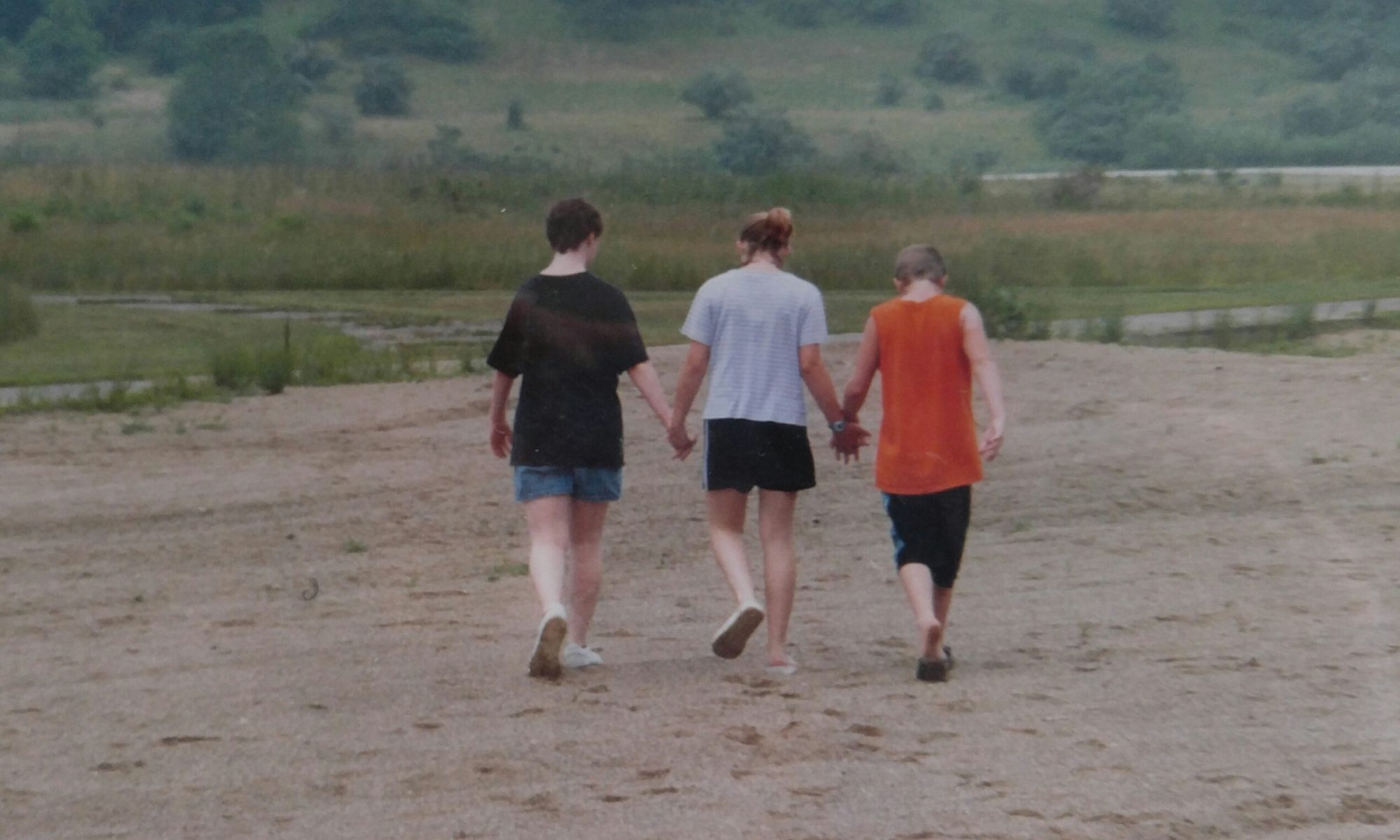Earlier this week, I finally got to spend the morning on the lake with my dad. As much as I enjoy going, it seems to only happen once a summer, so it’s always a special treat. He fishes and I sit and do nothing but relax. We were heading back to the boat ramp when I saw this tree and realized it was the perfect picture for every autism parent (or any special needs parent, really!).
Look at the base of it. The roots are barely hanging onto the bank. Only the tips are buried – the rest is exposed for all to see. And I’ve felt like that many times, haven’t you? Like I’m only holding on by my fingertips and at any minute, something is going to come along and knock me off my careful plan. Or we are out somewhere and people feel the urge to stare or point – and I feel like our lives are completely exposed for any stranger to look at us and judge me as an autism parent.
Not that I don’t stare right back – or make a comment to rude people, but sometimes, I’ve just been so tired, that those comments and stares are just too much and I sat and cried. We truly do live lives that are open for all to see – whether it’s teachers, doctors, therapists – and so many others. Because we need their help, we have very little privacy at times. When your child has a behavior at school, other parents can know about it before you do at times. And it’s sad and depressing and so exhausting. Been there, done that. And I expect that it will happen again.
Although it might seem contradictory, since I write this blog, I am a private person with much of our lives. I don’t like strangers knowing details about us when I don’t think it’s any of their business. I want to share as much as I can to help others through tough times – to share hope and bring smiles and laughter. To remind everyone that dark days always end and life does get easier. But some of our lives are just that – our lives. I have several autism parents that message me questions and I’m happy to answer those messages, but not publicly for the world to know.
So I sat in the boat and looked at this tree and noticed the trunk. Look how it’s bent at a right angle and has other bends in it. Yet, it’s still green and leafy and reaching for the beautiful blue sky. Just like autism parents! We follow our carefully made plans and then make an abrupt right turn when we hit a wall. We step back, think about our options and try again. Sometimes, we don’t have to make such a sudden stop as that right angel, but just minor detours in plans – like the bends in the tree.
I don’t even want to think about how many perfect plans that were laid out for the kids and they just blew up in my face. Because, of course, the best laid plans assumes that your child will eventually follow that plan – the plan they probably had little to no say in. And they have their own opinions – imagine that! 🙂 They want things a certain way – or don’t like what we think will be awesome for them. And even non-verbal people communicate every day – you just have to learn to listen carefully. Or, if you have a child like Casey was, you learn to get out of the way when the screaming and headbanging start.
She couldn’t tell me why she didn’t like something – but she sure let me know she didn’t! And that’s fine. If I didn’t like something and was forced to be near it, I would scream, too, if I couldn’t communicate any other way. And I’m sure you would, too – even those of you who are shaking your heads that you “would never.” Yeah, right – step into your child’s shoes and say that.
Rob didn’t scream – he just avoided things. And he could avoid in ways you haven’t even dreamed of. It’s funny, now, but at the time, I thought I would pull my hair out. He could figure out ways to do what he wanted faster than I could think of everything he might do. And he still can, at times. But now, I know to watch for his cute little smirk and the sparkles in his eyes and know he’s up to something.
So when you are having a bad day as an autism parent, keep the picture of this tree in mind. Hold on tightly, bend when you meet an obstacle, keep blooming, keep reaching for the sky and your dreams! You and your child will get there. It may not be the dreams you once had – but they will be awesome, beautiful dreams, just the same. Look how far we’ve come if you need inspiration! And if we can do it, anyone can. Casey and Rob are happy with their lives and isn’t that truly what every parent wants for their children?










